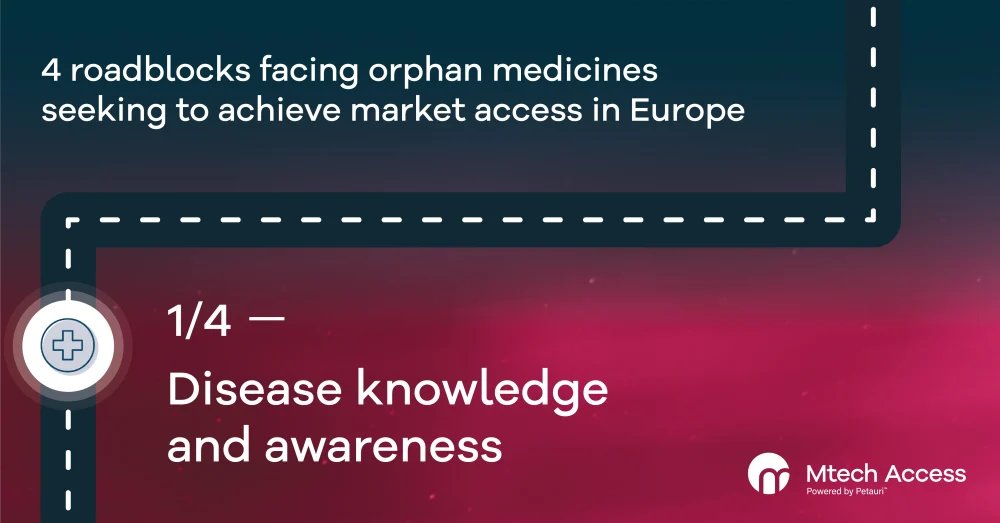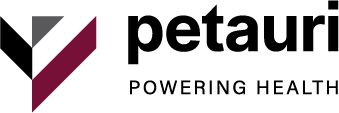Challenges for Orphan Medicines Entering the European Market – Part 1: Disease Knowledge and Awareness

In this four-part series, we will explore the various challenges facing orphan medicines entering the European market and offer solutions to help improve patient access. In Part 1, we will explore challenges linked to disease knowledge and awareness.
There are an estimated 7,000 rare diseases worldwide for which there is no current treatment, affecting up to 30 million people in Europe and 300 million people wordwide.1 “Rare diseases are not so rare” is indeed a suitable slogan repeated by advocates throughout the world to highlight the collective importance of this group of diseases.2
When exploring individual treatments, the rarity of rare diseases is a challenge. Rare diseases affect a small proportion of the population (<1/2,000 people in Europe), usually from birth or childhood, and are often severe.3 With such small populations, gathering disease knowledge and raising awareness can be a challenge with rare diseases.
Any medicine or device should have a pricing and market access strategy that is underpinned by a good understanding of the target patient population, including the current and anticipated future treatment pathway, epidemiology, patient subgroups and severities, and unmet needs. Consequently, gathering disease knowledge and raising awareness of patients’ needs is the first hurdle facing manufacturers looking to launch an orphan medicine or orphan device.
Challenges in disease knowledge and awareness
Market access teams looking to launch an orphan product in Europe often find that:
- Disease background data (including treatment pathway, patient subgroups, and epidemiology) are scarce and the science is typically complex
- The unmet need is difficult to define because of the small patient population, diagnostic challenges, and patient heterogeneity
- The relatively low proportion of patients in each market typically make the disease a lower priority for regulators and payers versus more common disease areas
- Clinical research organisations may need to apply more creative recruitment strategies to enrol patients onto rare disease clinical trials
- Delays to (or lack of) diagnosis prevent early clinical trial enrolment and can lead to therapeutic windows being missed. For example, if a potentially life-changing gene therapy must be provided within the first 2 years of life, delays in time to diagnosis and ultimate access to the therapy are crucial
Solutions to improve patient access
Pharmaceutical and medical technology companies need to invest in activities around disease knowledge and education, perhaps more significantly than in other more common disease areas, including learning from best practice and worst practice analogue case studies.
Early stakeholder engagement, including policy makers, academia, payers, clinicians, and, importantly, patient advocacy organisations, is ever more critical to plan effectively for clinical and economic evidence development and operational activities.
Patient-led collaborations in rare diseases, such as the HERCULES programme for Duchenne muscular dystrophy, demonstrate how patient organisations, industry, and payer organisations can collaborate to develop disease-level knowledge and tools. This enables and accelerates access to innovative medicines for patients with rare diseases.
Pharmaceutical and medical device companies also need to identify and develop or collaborate on resources, such as patient registries and real-world data capabilities. Payers are increasingly open to models of reimbursement with data collection agreements (i.e. registries tied to relevant real-world evidence) to surpass the typical access delay whilst supporting evidence development and protecting their budget impact.
Finally, to improve patient access, manufacturers must also overcome barriers to diagnosis and increase investment in diagnostic tools to better define patient subgroups, such as research on biomarkers that have a proven relationship with clinically meaningful outcomes.
In the next article in this series, we will look at challenges in clinical evidence development, with the series then exploring economic evidence development and operational challenges.
If you’d like to discuss these topics with us or hear more about how we can help you overcome your current challenges in a rare disease area, email info@mtechaccess.co.uk.
References:
- The Lancet Global Health. The landscape for rare diseases in 2024. Volume 12, Issue 3, e341.
- Nguengang Wakap S, Lambert DM, Olry A, et al. Estimating cumulative point prevalence of rare diseases: analysis of the Orphanet database. Eur J Hum Genet. 2020;28(5):165-73.
- European Commission. Joint evaluation of Regulation (EC) No 1901/2006 of the European Parliament and of the Council of 12 December 2006 on medicinal products for paediatric use and Regulation (EC) No 141/2000 of the European Parliament and of the Council of 16 December 1999 on orphan medicinal products 2020.

Share